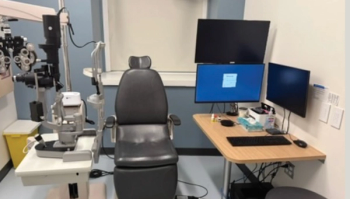
Nocturnal IOP
Nocturnal IOP measurements are critical in evaluating drugs, according to Professor Cordeiro speaking at the 4th World Congress on Controversies in Ophthalmology.
"Something we tend to forget, which is actually because we see the patient once during say 3 months, 6 months or even a year, is that we are only talking about a single time period. We must remember that IOP varies during the day," Prof. Cordeiro asserted. Drawing upon previously published literature in support of her argument she made the case for the importance of nocturnal IOP measurements in drug evaluation and in this article we will present the highlights of her discussion.
Diurnal-to-nocturnal change
According to studies performed by Dr Lui et al., there are multiple changes in the body while in the supine position that can alter the distribution of fluid in the eye resulting in an increased episcleral venous pressure.1,2 "Therefore, the IOP at night-time, by definition, must go up," said Prof. Cordeiro.
It is also known that blood pressure (which follows a circadian rhythm) dips during the night and as ocular perfusion pressure is related to blood pressure and IOP, this is also known to decrease at night-time.3 "In other words when the blood pressure drops, the IOP goes up and then the optic nerve head is more susceptible to damage and this explains why the argument of perfusion pressure is so important," added Prof. Cordeiro.
Further to a simple change in position, of either sitting or lying down, there have been studies suggesting that the side on which a patient sleeps (i.e., left or right side) can also have an effect on IOP,4 and obstructive sleep, such as apnoea, is becoming increasingly recognized as having an association with glaucoma.5
"These studies demonstrate that all of these things are important considerations to take into account when you are trying to assess what really is happening with IOP," confirmed Prof. Cordeiro. "So, putting all of this together, I think everyone is well aware that IOP is key to deciding whether or not our patients are well controlled and whether or not they will progress, and it appears that high IOP probably occurs at night."
Newsletter
Get the essential updates shaping the future of pharma manufacturing and compliance—subscribe today to Pharmaceutical Technology and never miss a breakthrough.




























